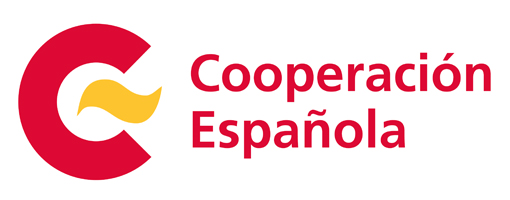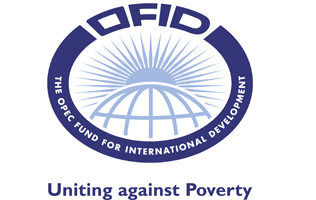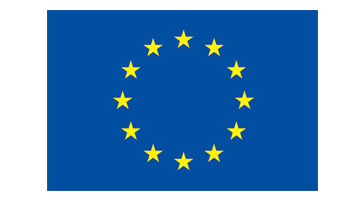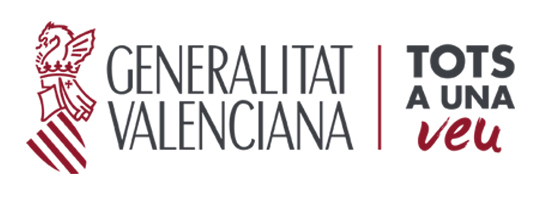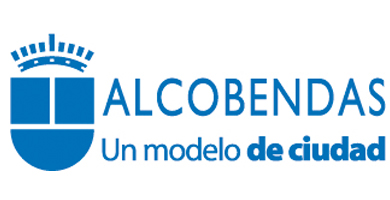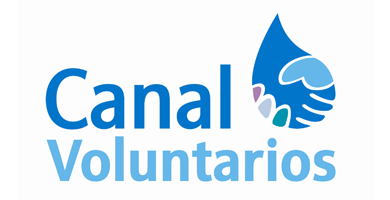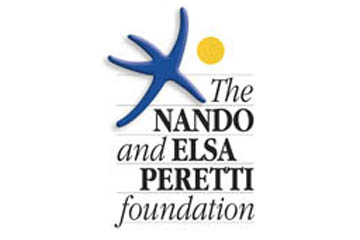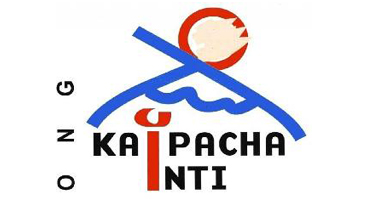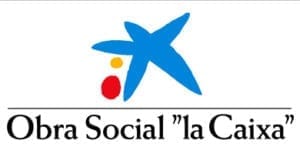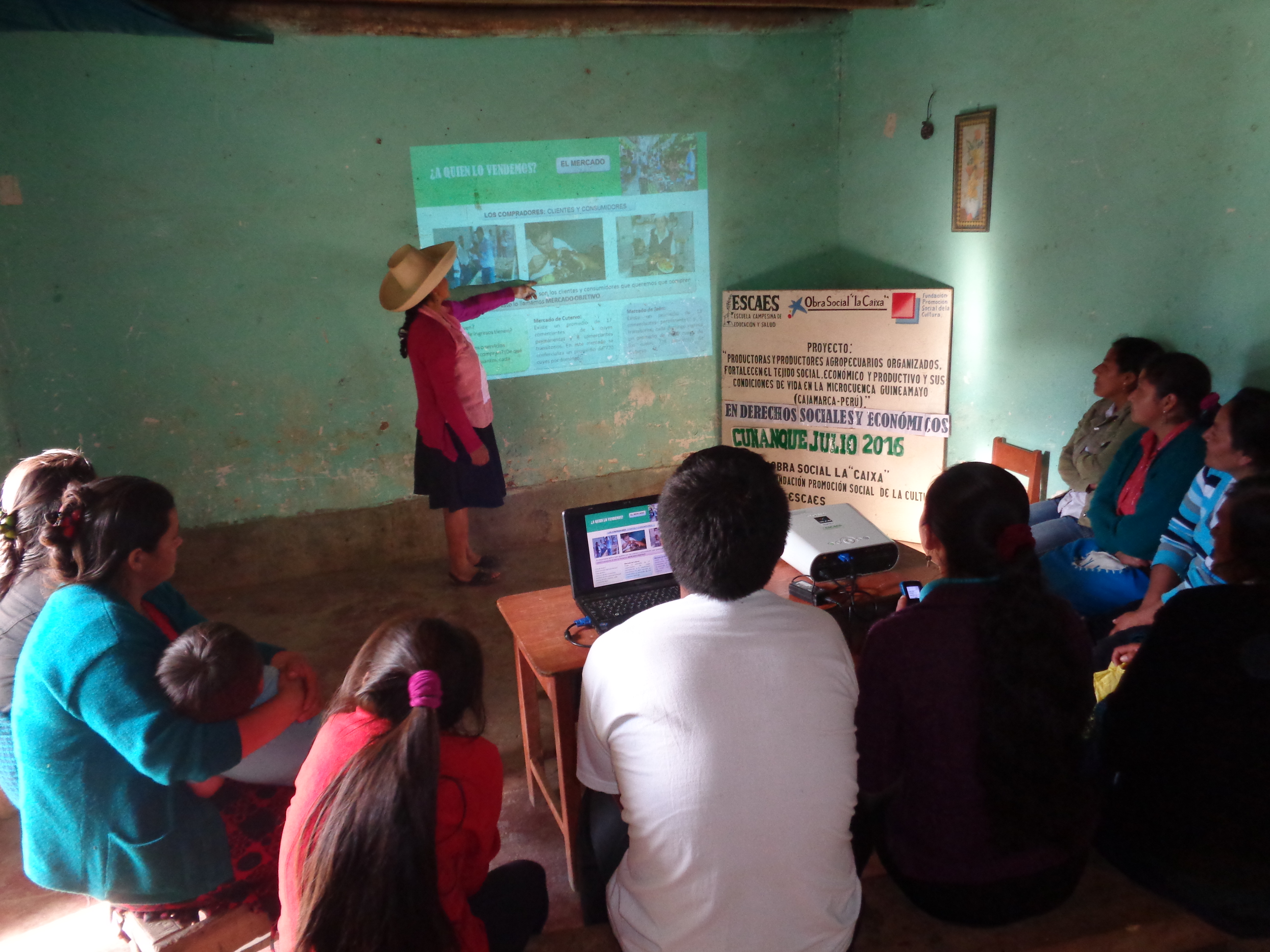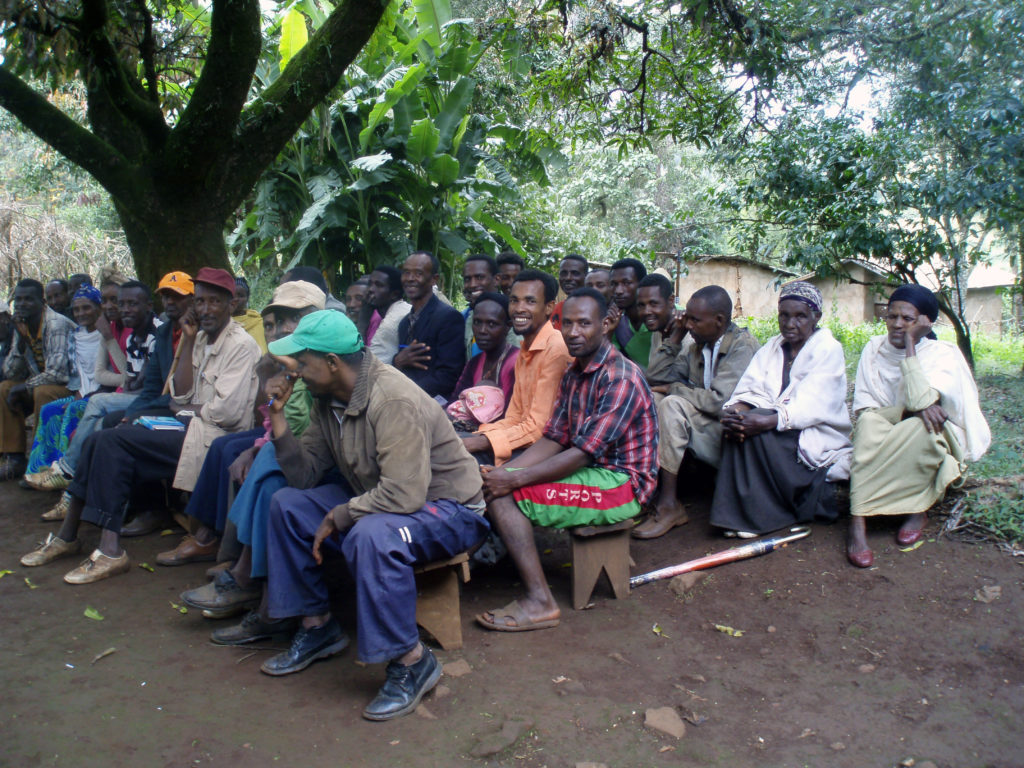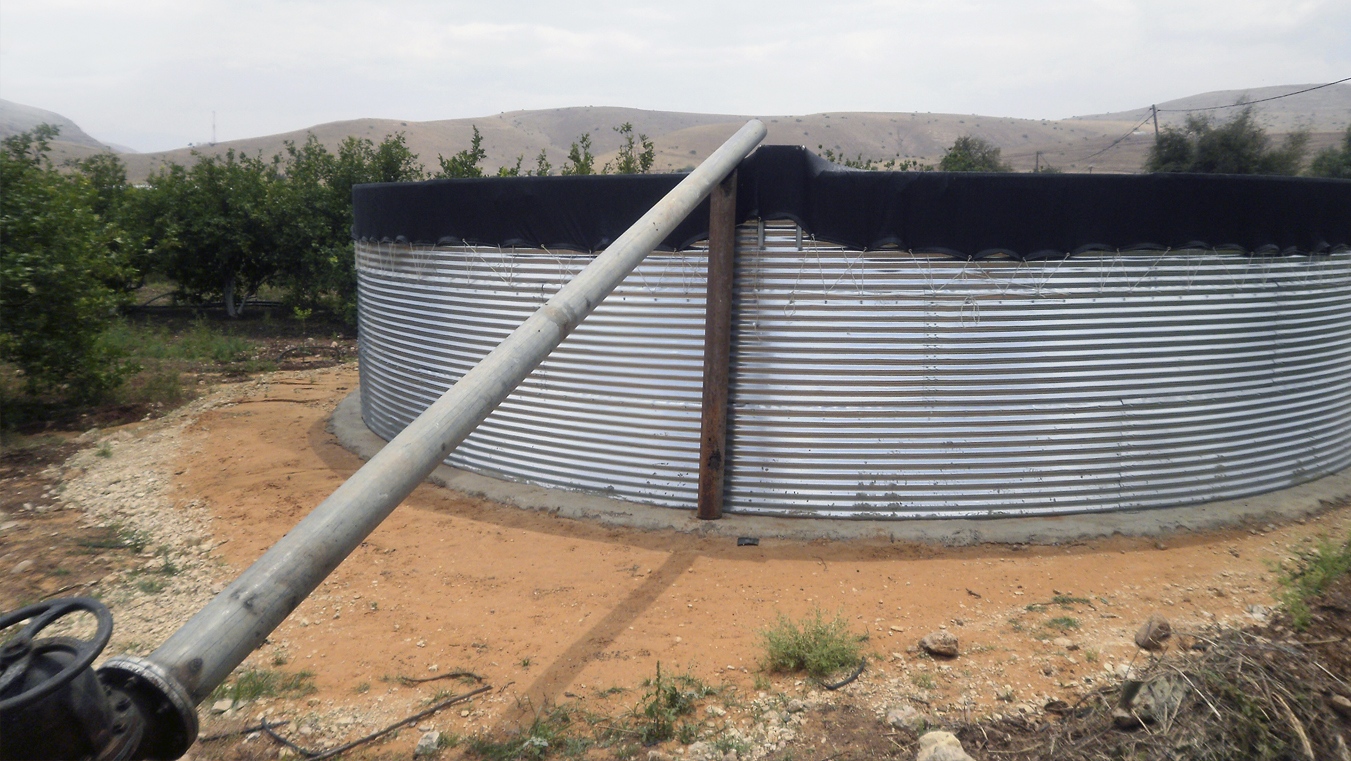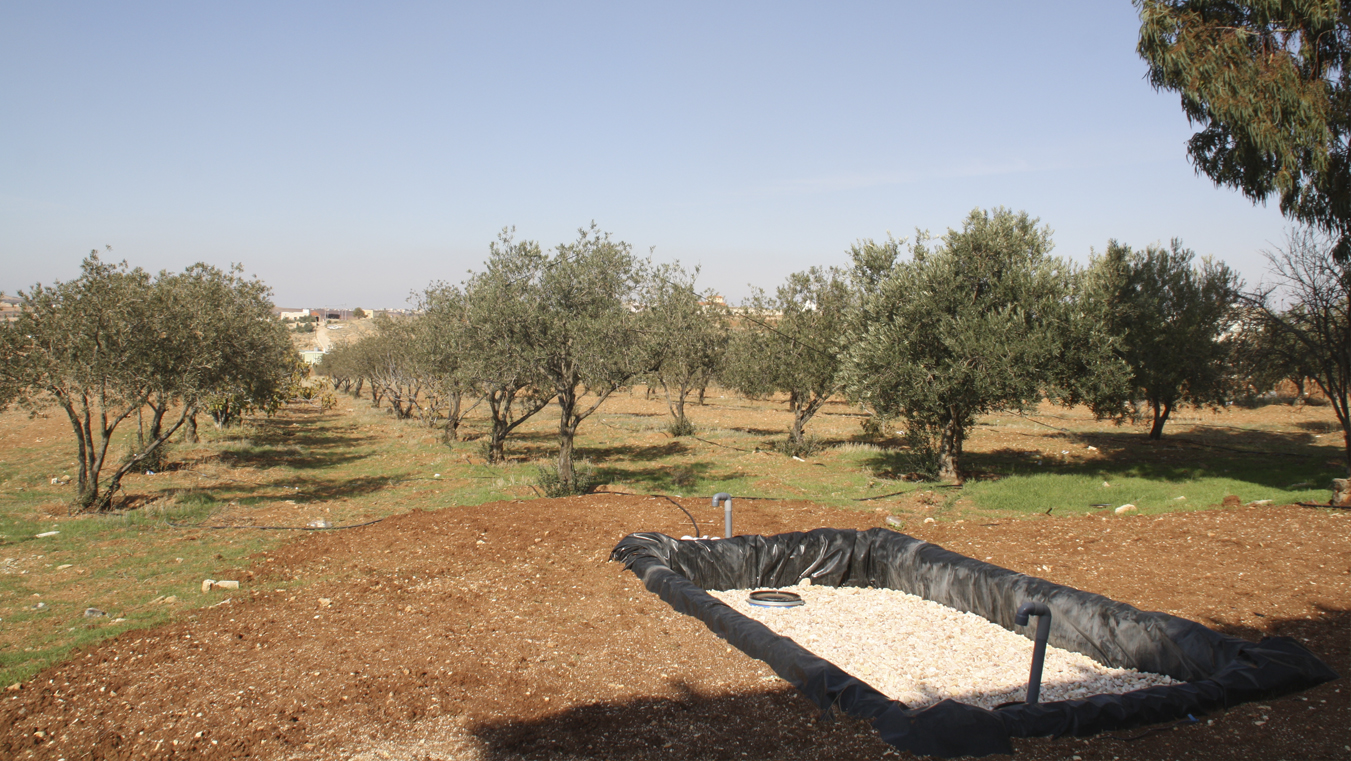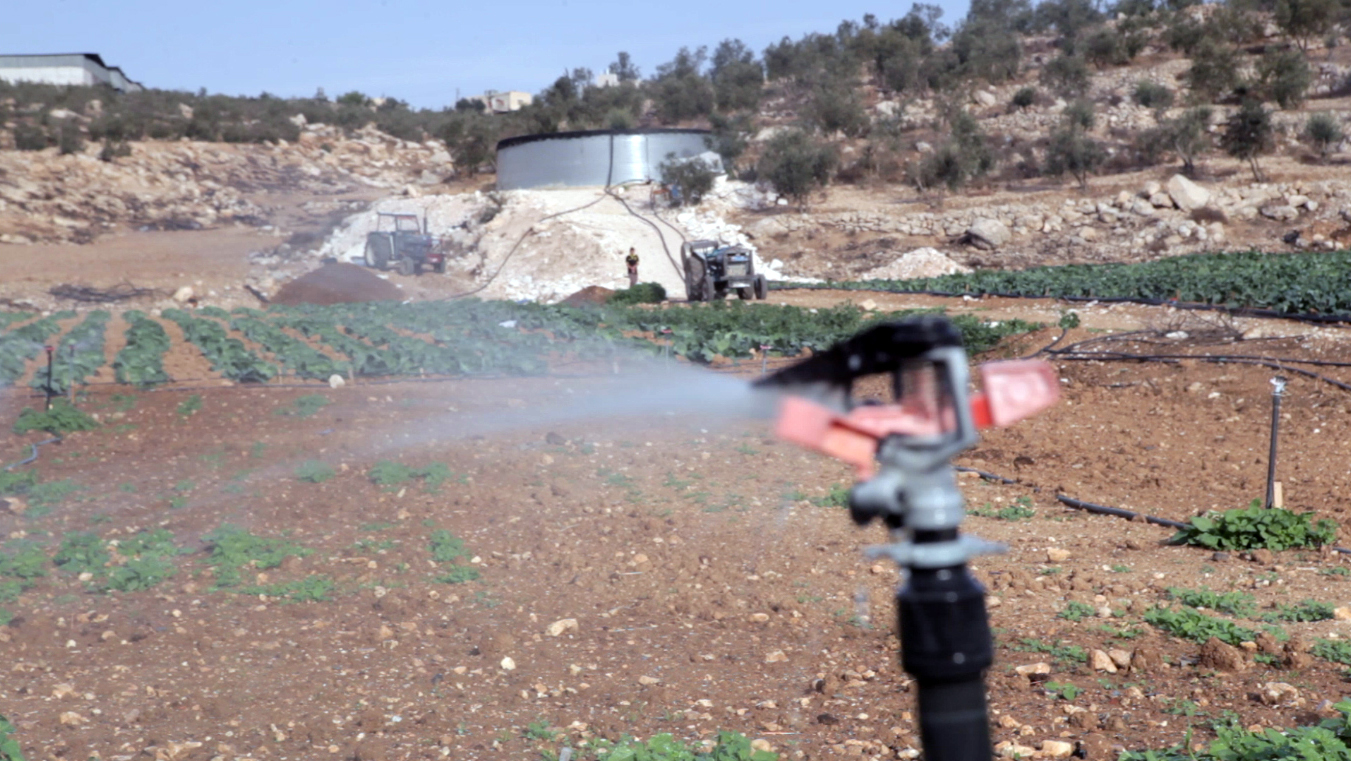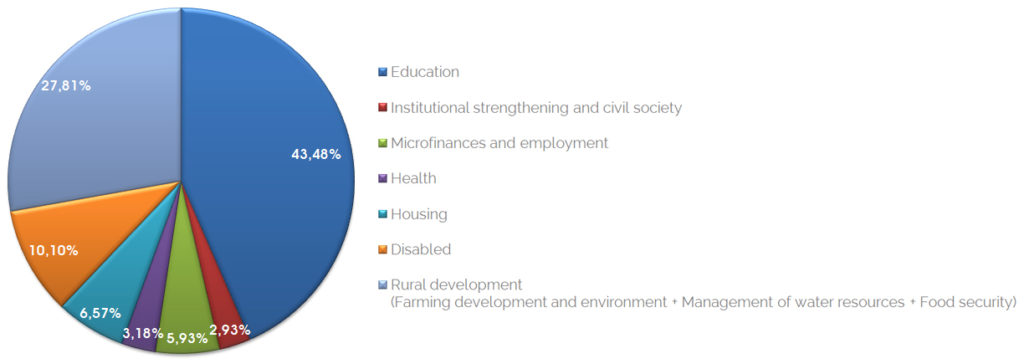
Social Promotion Foundation has allocated 27.81% of its resources for development cooperation to the rural development sector*.
Since 1992, Social Promotion has developed a total of 45 projects in this sector, in countries of the Middle East, Latin America, Africa and Southeast Asian.
(*Rural Development includes: Agricultural Development and Environment, Water Resources Management and Food Security.)
Collaborate with the sustainability of rural development projects of Social Promotion Foundation.
Food security has been defined by FAO not only as a function of access to and availability of food but also of the distribution of resources to produce them as well as the generation of purchasing power to buy them where they are not produced.
Women, a pillar of small-scale agriculture, peasant work and daily family subsistence, have greater difficulties than men when it comes to accessing resources such as land and credit and inputs and services that increase productivity ( FAO).
The empowerment of farmers and ranchers is essential through training in agricultural techniques for crop diversification and in the breeding and prevention of livestock diseases, training in nutrition, and support for the creation of small farmers’ cooperatives for promoting the commercialization of agricultural production.
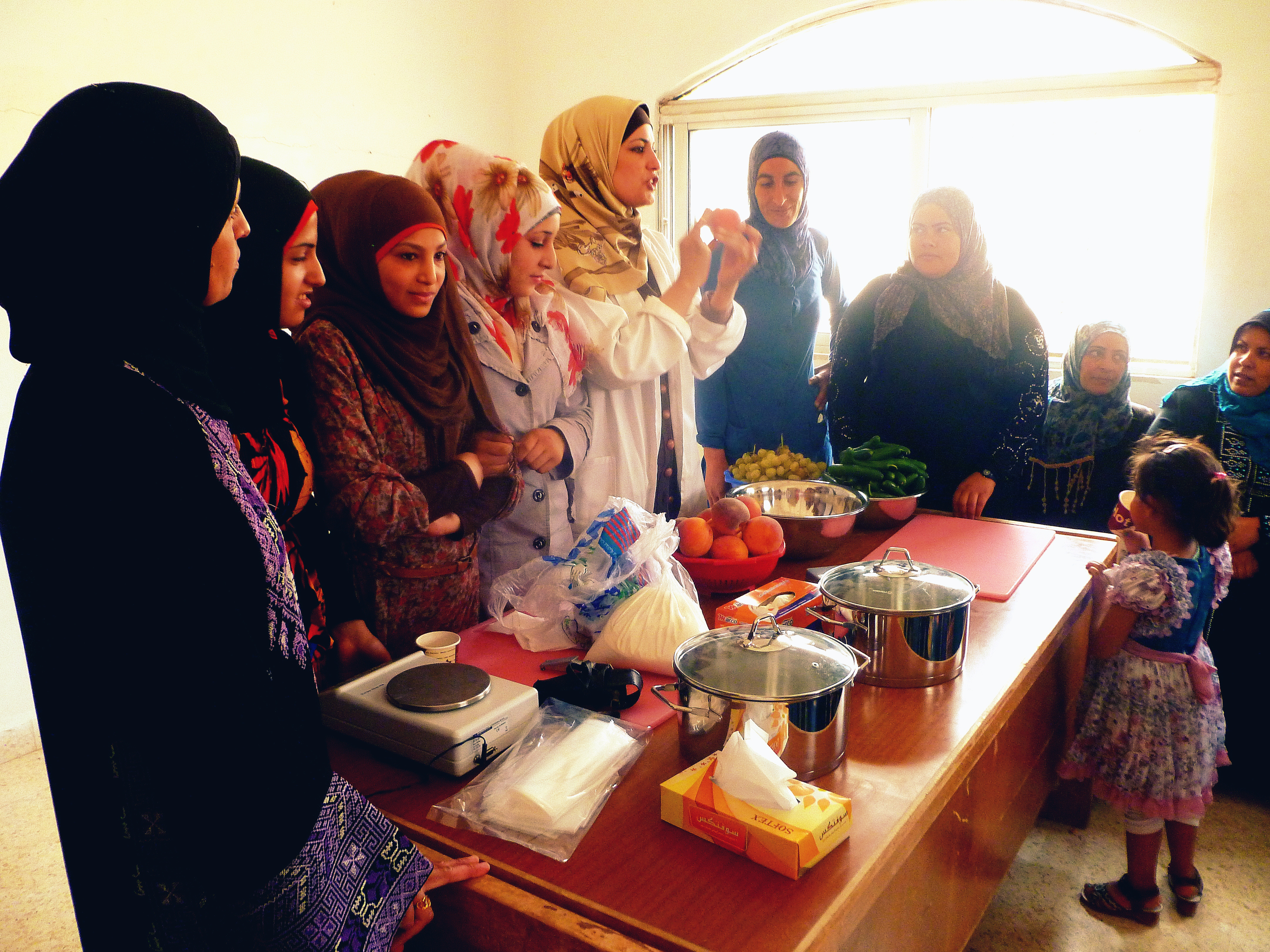
The empowerment of women en communities is fostered, improving their socioeconomic status and their entrepreneurial and institutional capacities through their incorporation into the productive process with equity.
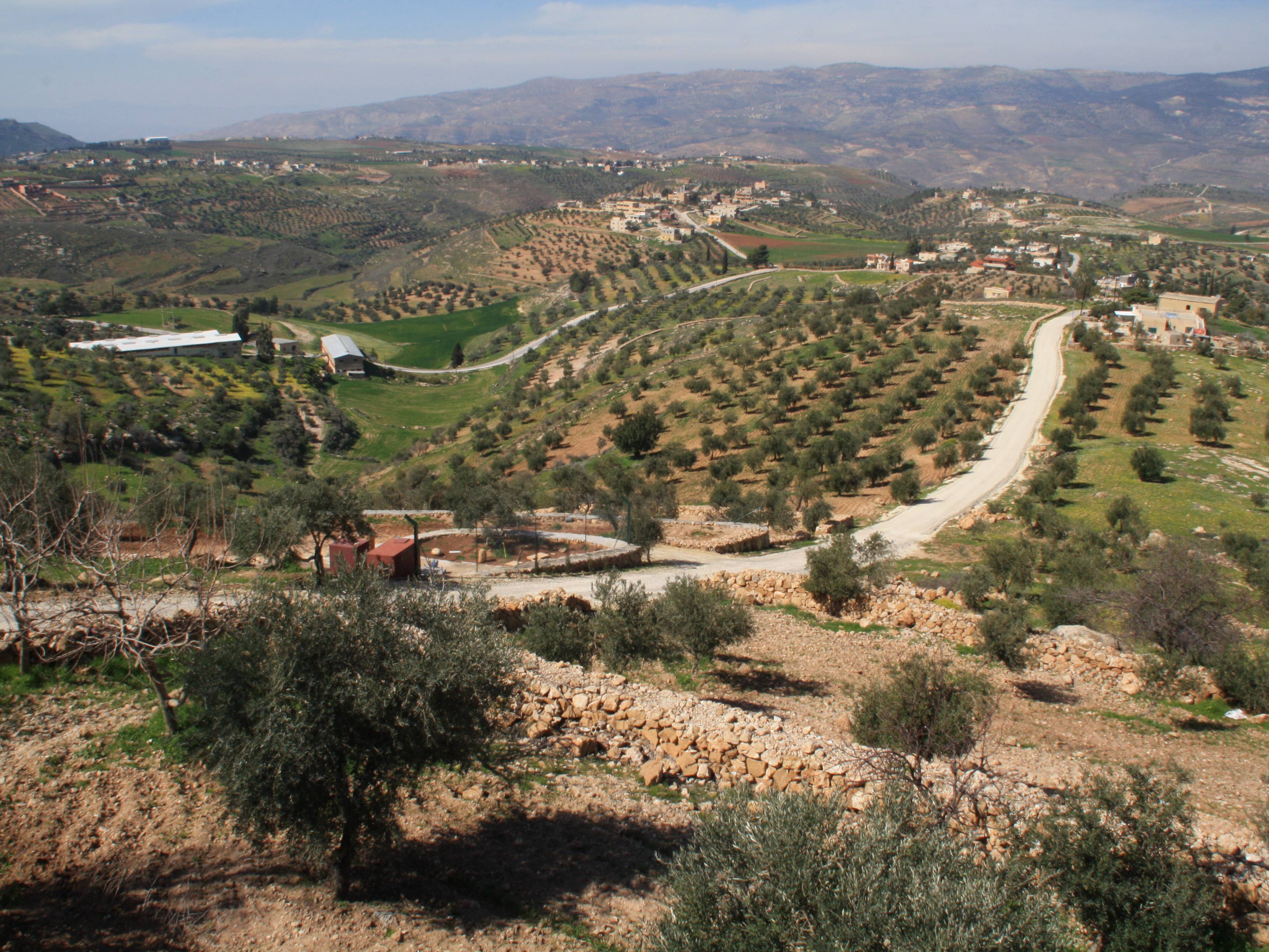
Construction of roads that facilitate access to crops, and recovery of waste lands for agricultural use in Tulkarem.
In many cases, the energy deficit makes the use of clean energies pto guarantee the sustainability of agricultural activity and its productivity.
Renewable energies contribute to improve the quality of life of farmers and ranchers, add value to their products and promote the sustainability of production systems and respect the environment.
In Gaza, solar energy systems have been installed in 30 poultry farms in which the electricity generated provides night-time lighting – poultry farms need at least 16 hours of daylight throughout the year – heating in winter and cooling in summer, reducing dependence on the general electrical network.
The Human Right to Water is essential for the realization of other rights. Lack of access to water drags people into poverty, and penalizes them harshly in other aspects, such as agricultural development, negatively affecting their nutrition and health.
It is essential to ensure minimum levels of water necessary to guarantee agricultural production in arid and semi-arid regions of the planet.
In the Middle East, and specifically in Palestine, the actions of Social Promotion projects are aimed at improving infrastructure, the construction of rainwater collection tanks, the rehabilitation of wells, the renovation of wastewater drainage systems, as well as awareness and advisory programs on environmental conservation and rational use of water.
Water in the Middle East is a key issue in the pacification of the region.
